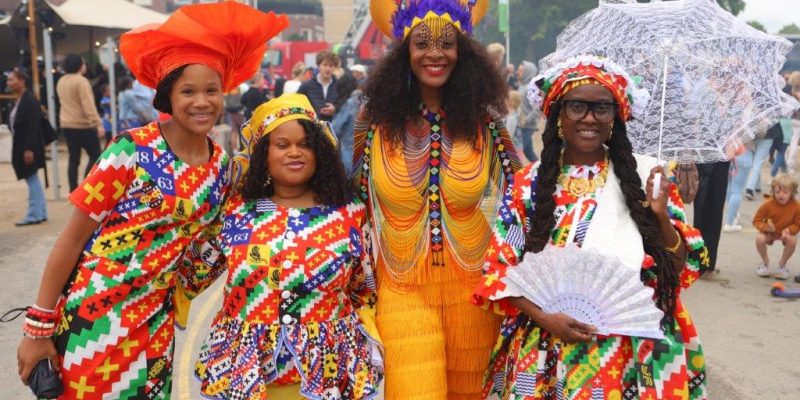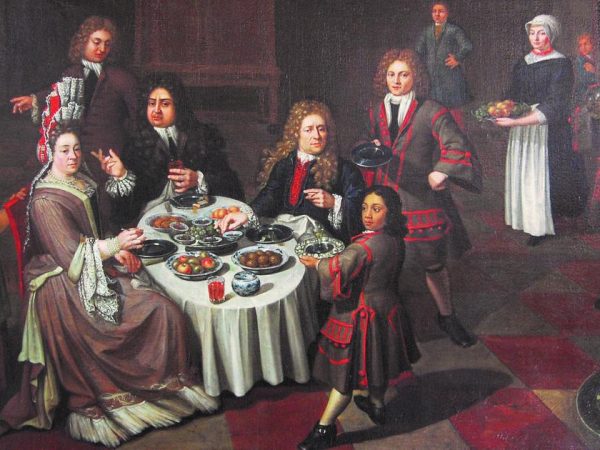Keti Koti: 10 Powerful Stories That Illuminate This Landmark Day

Keti Koti, or “Breaking the Chains,” is a significant day celebrated in the Netherlands and Suriname to mark the end of slavery. Observed annually on July 1st, it commemorates the abolition of slavery in the Dutch colonies in 1863. This day is rich with history, emotion, and cultural reflection, offering a moment to remember the struggles of those who endured slavery and to celebrate freedom and progress.
The Origins of Keti Koti: A Historical Overview
Keti Koti is deeply rooted in the history of slavery and its abolition. The day marks the anniversary of the official emancipation of enslaved people in the Dutch colonies, which included Suriname and the Dutch Caribbean territories. The term “Keti Koti,” meaning “Breaking the Chains” in Sranan Tongo, reflects the liberation of enslaved individuals from bondage.
In the 19th century, slavery was a brutal reality in many parts of the world, including the Dutch colonies. The struggle for freedom was long and arduous, involving countless individuals who fought against the dehumanizing institution of slavery. The passing of the Emancipation Act on July 1, 1863, was a turning point that led to the end of legal slavery in these regions.
The Emancipation Act of 1863: A Turning Point in Dutch History
The Emancipation Act of 1863 was a pivotal moment in Dutch history, marking the official end of slavery in the Dutch colonies. This legislation was the result of extensive activism, both from within the colonies and from abolitionists in the Netherlands.
The act mandated the abolition of slavery, but it did not immediately free all enslaved people. Instead, it initiated a ten-year transition period during which enslaved individuals were required to continue working for their former owners under new conditions. Despite this, the act was a crucial step toward freedom and equality, and its anniversary is celebrated with great significance on Keti Koti.
The Role of Abolitionists in the Keti Koti Movement
Abolitionists played a crucial role in the Keti Koti movement, advocating for the end of slavery and the rights of enslaved people. These individuals, including activists and political figures, worked tirelessly to raise awareness about the inhumanity of slavery and to push for legislative change.
Their efforts were instrumental in the passing of the Emancipation Act of 1863. These abolitionists, both from the colonies and from the Netherlands, faced significant resistance but remained steadfast in their commitment to justice. Their stories are integral to understanding the significance of Keti Koti and the ongoing struggle for human rights.
Personal Stories of Freedom: Voices from the Past
Personal stories from those who experienced slavery and liberation offer profound insights into the impact of this landmark day. These narratives, often passed down through generations, provide a window into the lives of individuals who lived through the hardships of slavery and the joy of their emancipation.
One notable example is the story of a former enslaved person in Suriname who, upon gaining freedom, became a prominent community leader and advocate for social justice. These personal accounts not only honor the memory of those who suffered but also celebrate their resilience and contributions to society.
The Cultural Significance of the Day in Suriname
In Suriname, this day is celebrated with great enthusiasm and cultural pride. The day is marked by various festivities, including parades, traditional music, and dance performances. These celebrations reflect the rich cultural heritage of Suriname and the enduring legacy of its people.
The cultural significance of the day in Suriname extends beyond mere celebration; it is a time for reflection on the nation’s history and the progress made since the abolition of slavery. The day serves as a reminder of the country’s diverse heritage and the ongoing journey toward equality and justice.
Observing the Day in the Netherlands: A Day of Remembrance and Reflection
In the Netherlands, this day is observed with a focus on remembrance and reflection. The day serves as an opportunity to confront the painful legacy of slavery and to engage in discussions about its lasting impact on Dutch society.
Events in the Netherlands often include educational programs, public lectures, and art exhibitions that explore the history of slavery and its effects on contemporary issues. These activities aim to foster a deeper understanding of the past and to promote dialogue about racial and social justice.
The Role of Education in Honoring the Day
Education plays a vital role in honoring this day and ensuring that the history of slavery is accurately represented and remembered. Schools and institutions often use this day to teach students about the abolition of slavery and its significance.
Educational initiatives related to this day include classroom discussions, historical reenactments, and projects that explore the experiences of enslaved people. These educational efforts help to ensure that future generations understand and appreciate the importance of this landmark day.
The Impact on Modern Social Justice Movements
The legacy of this day extends beyond historical remembrance and into contemporary social justice movements. The principles of freedom and equality celebrated on this day resonate with ongoing efforts to address racial and social inequalities.
Modern social justice movements draw inspiration from the struggles and triumphs associated with this day, using it as a platform to advocate for change and to raise awareness about issues such as racial discrimination and inequality. The continued relevance of this day underscores the importance of addressing these issues in today’s world.
The Significance of the Day in Contemporary Surinamese Identity
For many people in Suriname, this day is a cornerstone of national identity and cultural heritage. The day serves as a reminder of the country’s journey from slavery to freedom and the ongoing efforts to build a more just and inclusive society.
Celebrations on this day often include ceremonies and cultural events that reinforce the nation’s pride in its history and achievements. The day is a time for Surinamese people to come together, honor their ancestors, and reflect on their collective identity.
Future Prospects for the Day: Preserving the Legacy
As this day continues to be celebrated each year, efforts are underway to preserve and enhance its legacy. This includes initiatives to expand educational programs, increase public awareness, and foster international collaboration on issues related to slavery and human rights.
The future of this day involves not only remembering the past but also using its lessons to shape a more equitable and just future. By continuing to honor this landmark day, we ensure that the stories and struggles associated with it remain a vital part of our collective consciousness.
Conclusion
Keti Koti stands as a powerful reminder of the struggle for freedom and the ongoing journey toward justice. Through its rich history and cultural significance, the day offers a moment to reflect on the past, honor those who fought for liberation, and celebrate the progress made since the abolition of slavery.
The ten stories explored in this article highlight the multifaceted nature of Keti Koti, from its historical origins to its impact on modern social justice movements. Each narrative contributes to a deeper understanding of the significance of this landmark day and underscores the importance of remembering and honoring the legacy of freedom.
FAQs
Q1. What does Keti Koti mean?
Keti Koti translates to “Breaking the Chains” in Sranan Tongo. It commemorates the end of slavery and the liberation of enslaved people in the Dutch colonies.
Q2. How is the abolition of slavery remembered in Suriname?
In Suriname, the abolition of slavery is celebrated with various cultural events, including parades, traditional music, dance performances, and ceremonies that honor the country’s heritage and history.
Q3. What activities are common in the Netherlands to observe this historic day?
In the Netherlands, the day is observed with educational programs, public lectures, art exhibitions, and discussions about the legacy of slavery and its impact on contemporary issues.
Q4. How does education play a role in commemorating the end of slavery?
Education helps in remembering the end of slavery by incorporating the history into school curricula, conducting classroom discussions, and organizing projects that explore the experiences of those affected by slavery.
Q5. Why are modern social justice movements inspired by the history of slavery abolition?
Modern social justice movements draw inspiration from the history of slavery abolition to advocate for equality and address ongoing issues of racial and social discrimination, using the legacy of the past to push for positive change in today’s society.
Also read: Train from Amsterdam to The Hague: 10 Scenic Views You’ll Enjoy Along the Way











